MPOX STUDIES
MOSAIC cohort
OBJECTIVE
The objective of this observational study is to deepen our understanding of the clinical and virological outcomes in patients diagnosed with mpox. This approach aims to provide a comprehensive insight into the natural history of the disease. Additionally, MOSAIC aims to provide insight into both the efficacy and safety outcomes in patients, comparing those treated with antiviral drugs to those not receiving treatment.
STUDY PARTICIPANTS
Individuals diagnosed with laboratory-confirmed mpox disease have been be recruited from hospitals across the UK and Europe, with management options available for both inpatient and outpatient settings, depending on local organizational protocols. Additionally, patients awaiting laboratory confirmation could be enrolled in the study if they was treated as mpox cases due to a high suspicion of the disease. Patients initially considered presumptive but tested negative for mpox, were removed from the study.
STUDY DESIGN
This research was a multi-centre, multi-country prospective observational study, enrolling patients with laboratory- confirmed mpox, regardless of whether they are being treated with an antiviral treatment or not. The study was coordinated and sponsored by the University of Oxford, with ANRS MIE as sponsor representative in Europe. In total, seven countries was involved in patient recruitment: Belgium, France, Italy, Spain, Switzerland, United Kingdom and Singapore. Patients was followed until 180(±7) days after diagnosis as inpatients or outpatients, according to local organization.
STATUT
- Inclusion completed
CONSORTIUM PARTNERS INVOLVED IN THE STUDY


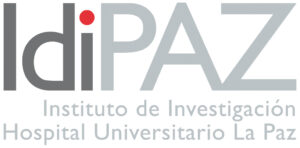
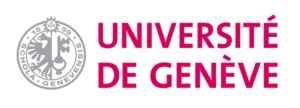

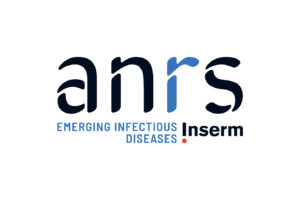
The MPX-RESPONSE project includes three randomized clinical trials (RCTs)
EPOXI trial
MOSA trial
UNITY trial
The protocols of all three trials are based on the WHO CORE protocol, designed for a global trial assessing drug safety and efficacy in treating human mpox. The WHO recommends using antivirals in mpox treatment through collaborative research and standardized RCT protocols. These protocols, incorporating uniform data collection tools, aim to quickly generate evidence on treatment efficacy and safety.
EPOXI trial
OBJECTIVE
Historically, mpox virus infection was limited to certain African regions, but it has recently emerged as a global concern, affecting different at-risk populations with symptoms that differ from those typically observed in African countries. Currently, tecovirimat SIGA (the sole registered medicinal treatment for mpox disease in Europe), has not undergone a thorough evaluation in patients through randomized double-blind studies. The EPOXI trial aims to fill this gap by conducting a thorough study, assessing the efficacy and safety of tecovirimat SIGA against mpox, with the goal of securing marketing authorization from the EMA, if the treatment demonstrates positive results. Treatment efficacy will be assessed by time to resolution of all visible lesions and symptoms. The EPOXI study protocol is based on the WHO CORE protocol.
STUDY PARTICIPANTS
The study includes adult (18 years old and older) patients diagnosed with laboratory-confirmed mpox disease, who are managed either as hospitalized or outpatients.
STUDY DESIGN
This trial is a multi-center, multi-country trial conducted in Europe and is designed as a randomized, placebo-controlled, double-blinded study to avoid subjective assessment and potential bias in the evaluation. EPOXI is designed to enroll 150 subjects across 8 to 10 European countries. In this study, the total patient follow-up is of 90 days, of which 14 of treatment with the study drug / placebo.
STATUT
- Ongoing inclusion
- First patient enrolment : August 2024
EPOXI is the first multinational trial for a WHO designated health emergency, conducted under the updated EU regulatory framework effective from January 1, 2022 (including GDPR, CTIS, CTR, etc.). EPOXI will provide useful information about the challenges, problems, and timelines when conducting clinical trials during emergency situations, with a special focus on the preparation phase. The results will help make practical suggestions to improve how Europe gets ready for future pandemics.
CONSORTIUM PARTNERS INVOLVED IN THE STUDY


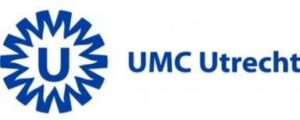


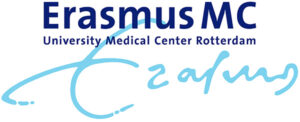
MOSA trial
OBJECTIVE
The MOSA study will evaluate the safety and efficacy of antiviral drugs for the treatment of human mpox in several countries in West Africa (DRC, Nigeria, Cameroun,…). This study is based on the WHO CORE protocol, adapted with the specificities of the natural history of MPOX disease in Africa. The study will allow for the generation of evidence from different subgroups and geographical locations.
STUDY PARTICIPANTS
The study will include patients diagnosed with laboratory-confirmed mpox disease and must exhibit at least one visible active or skin mucosal lesion. Subjects will either be hospitalized or managed as out-patients and will undergo regular clinical and laboratory assessments for safety and efficacy according to the study Schedule of Activities.
The inclusion criteria also include being adult or adolescent aged 14 and children above 13kg.
STUDY DESIGN
The study has been designed as a phase 3, randomized, placebo-controlled, double-blinded study to avoid subjective assessment and potential bias in the evaluation. Besides, MOSA operates as a platform trial, enabling the continuous investigation of multiple target treatments within the same disease context. This unique approach allows therapies to enter or exit the platform based on a decision algorithm. The first candidate to be evaluated is brincidofovir (Emergent BioSolutions). Patients enrolled in the study are followed for 28 days.
STATUT
- Ongoing inclusion
- Site initiation : December 2024
CONSORTIUM PARTNERS INVOLVED IN THE STUDY




UNITY trial
OBJECTIVE
The UNITY study is a randomized, placebo-controlled phase 3 trial to evaluate the safety and efficacy of tecovirimat SIGA for the treatment of human mpox.
The study is based on the WHO CORE protocol, sponsored by ANRS-MIE and conducted in Argentina, Brazil and Switzerland.
STUDY PARTICIPANTS
The study includes participants with either a laboratory-confirmed or highly suspected mpox infection, and must exhibit at least one visible active skin or mucosal lesion. Subjects will either be hospitalized or managed as outpatients. The inclusion criteria also include being adult or adolescent aged 14 and older.
NEWS
Find out more about the first results of the UNITY study, communicated at IAS 2025 on July 17.
STUDY DESIGN
The study has been designed as a randomized, placebo-controlled, double-blinded study to avoid subjective assessment and potential bias in the evaluation. Patients enrolled in UNITY are administered the study drug or placebo for 14 days. Considering day 1 (D1) as baseline, patients are followed up until Day 29, and an optional follow-up visit can be done at Day 60.
STATUT
- Detailed virological, pharmacokinetic, and immunological analyses of samples collected from patients : planned in late 2025/2026
- Ongoing analyses on the open-label arm
- Primary results communicated at IAS 2025
- First patient enrolment : March 2023
CONSORTIUM PARTNERS INVOLVED IN THE STUDY







